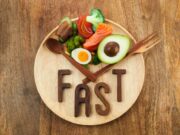best feed for goats to improve health
When it comes to raising goats, one of the most crucial aspects to consider is their nutrition. Proper nutrition is not just about keeping your goats fed; it plays a vital role in their overall health, growth, and productivity. Goats are ruminants, which means they have a unique digestive system that allows them to break down fibrous plant materials efficiently.
This system requires a balanced diet rich in various nutrients to function optimally. Without proper nutrition, goats can suffer from a range of health issues, including poor growth rates, reproductive problems, and weakened immune systems. Moreover, the right nutrition can significantly impact the quality of milk and meat produced by your goats.
For dairy goats, a well-balanced diet can lead to higher milk yields and better milk quality, while for meat goats, it can enhance muscle development and overall body condition. By investing time and effort into understanding and providing proper nutrition for your goats, you are not only ensuring their well-being but also maximizing your investment in their care. Please feel free to reach out to us through our Contact Us page at Contact Us.
Key Takeaways
- Proper nutrition is essential for the health and well-being of goats
- Forage such as grass, legumes, and browse are important components of a goat’s diet
- Supplementing with grain and protein can help meet the nutritional needs of goats, especially during certain stages of life or production
- Minerals and vitamins play a crucial role in maintaining the overall health and productivity of goats
- It is important to be aware of and avoid toxic plants and substances that can harm goats
Types of Forage for Goats
Forage is the cornerstone of a goat’s diet, and understanding the different types available can help you make informed choices. Goats thrive on a variety of forages, including grasses, legumes, and browse. Grasses such as timothy, fescue, and orchard grass are excellent sources of fiber and should form the bulk of their diet.
Legumes like alfalfa and clover are also beneficial as they provide higher protein content, which is essential for growth and lactation. Browse is another important component of a goat’s diet. This includes leaves, twigs, and shrubs that goats naturally seek out in their environment.
Goats are known for their browsing behavior, which means they prefer to eat from bushes and trees rather than just grazing on grass. Providing a mix of these forages not only keeps your goats satisfied but also encourages natural behaviors that contribute to their mental well-being. Remember that variety is key; rotating different types of forage can help prevent boredom and ensure a balanced intake of nutrients.
Supplementing with Grain and Protein
While forage should be the primary component of your goats’ diet, there are times when supplementing with grain and protein becomes necessary. Grain can be an excellent source of energy, especially for pregnant or lactating does and growing kids. However, it’s essential to choose the right type of grain and to offer it in moderation.
Common grains used in goat diets include corn, oats, and barley. These grains should be introduced gradually to avoid digestive upset. Protein supplements can also be beneficial, particularly for young goats or those in high-production phases.
Options like soybean meal or commercial goat feed formulated with added protein can help meet their nutritional needs. When supplementing with grain and protein, always keep an eye on your goats’ body condition. Over-supplementation can lead to obesity and related health issues, so it’s crucial to strike a balance that supports their growth without compromising their health.
Importance of Minerals and Vitamins
Just like humans, goats require a range of vitamins and minerals to maintain optimal health. These nutrients play critical roles in various bodily functions, including bone development, immune response, and reproductive health. A well-rounded mineral supplement is essential for goats, especially if they are grazing on pasture that may be deficient in certain nutrients.
Common minerals that goats need include calcium, phosphorus, magnesium, and selenium. Calcium and phosphorus are particularly important for bone health and should be provided in a balanced ratio. Additionally, vitamins A, D, and E are vital for overall health and should be included in their diet either through forage or supplements.
Regularly providing a mineral block or loose mineral mix can help ensure that your goats receive these essential nutrients consistently.
Avoiding Toxic Plants and Substances
As a goat owner, one of your responsibilities is to ensure that your goats do not have access to toxic plants or substances that could harm them. Goats are curious creatures and will often nibble on anything they find interesting, which can lead to accidental poisoning if they consume harmful plants. Some common toxic plants include azaleas, rhododendrons, yew, and certain types of nightshade.
To protect your goats, it’s essential to familiarize yourself with the plants in your area that may pose a risk. Regularly inspect their grazing areas and remove any toxic plants you find. Additionally, educating yourself about the signs of poisoning can help you act quickly if you suspect your goat has ingested something harmful.
Symptoms may include vomiting, diarrhea, lethargy, or unusual behavior. If you notice any of these signs, contact your veterinarian immediately for guidance.
Feeding Schedule and Quantity
Feeding Frequency and Routine
A consistent feeding schedule helps to reduce stress and promote better digestion in goats. Feeding your goats at the same time every day creates a predictable environment that they can thrive in.
Determining the Right Quantity
When determining how much to feed your goats, it’s essential to consider factors such as age, weight, activity level, and whether they are pregnant or lactating. Adult goats typically require about 2-4% of their body weight in dry matter daily. For example, a 100-pound goat would need approximately 2-4 pounds of forage each day.
Monitoring and Adjusting
Keep an eye on their body condition score (BCS) to adjust feeding amounts as needed. If they appear too thin or too heavy, you may need to modify their diet accordingly. Regular monitoring ensures that your goats receive the right amount of nutrients for optimal health and well-being.
Hydration and Water Quality
Water is often overlooked but is just as important as food when it comes to goat care. Goats need access to clean, fresh water at all times to stay hydrated and healthy. Dehydration can lead to serious health issues such as kidney problems or urinary calculi (stones), which can be life-threatening if not addressed promptly.
In colder months, consider using heated water buckets or troughs to ensure that your goats have access to liquid water even when temperatures drop below freezing. Monitoring their water intake can also give you insights into their overall health; if you notice a significant decrease in water consumption, it may indicate an underlying issue that requires attention.
Monitoring and Adjusting the Diet
Finally, one of the most important aspects of caring for your goats is monitoring their diet regularly and making adjustments as needed. Each goat is unique; factors such as age, breed, health status, and environmental conditions can all influence their nutritional needs. Regularly assess their body condition score (BCS) to determine if they are receiving adequate nutrition.
If you notice any changes in behavior or physical condition—such as weight loss or lethargy—consider reevaluating their diet. It may be necessary to increase forage quality or adjust supplements based on their specific needs at different life stages. Keeping detailed records of feeding practices can also help you identify patterns over time and make informed decisions about dietary adjustments.
In conclusion, providing proper nutrition for your goats is essential for their health and productivity.
Remember that happy goats lead to happy owners!
FAQs
What is the best feed for goats to improve health?
The best feed for goats to improve health includes high-quality hay, fresh grass, and a balanced commercial goat feed.
What should be included in a balanced commercial goat feed?
A balanced commercial goat feed should include a mix of grains, protein sources, vitamins, and minerals to meet the nutritional needs of goats.
Can goats eat hay and grass for their primary diet?
Yes, goats can eat hay and grass as their primary diet, but it’s important to ensure that the hay and grass are of high quality and free from mold and contaminants.
What are some common health issues in goats that can be improved with proper feeding?
Common health issues in goats that can be improved with proper feeding include nutritional deficiencies, digestive problems, and overall weakness.
Are there any specific supplements that can improve the health of goats?
Yes, specific supplements such as mineral blocks, probiotics, and vitamin supplements can help improve the health of goats when added to their diet as needed.
How important is water intake for the health of goats?
Water intake is crucial for the health of goats as it helps with digestion, regulates body temperature, and supports overall health and well-being. It’s important to provide clean and fresh water at all times.











